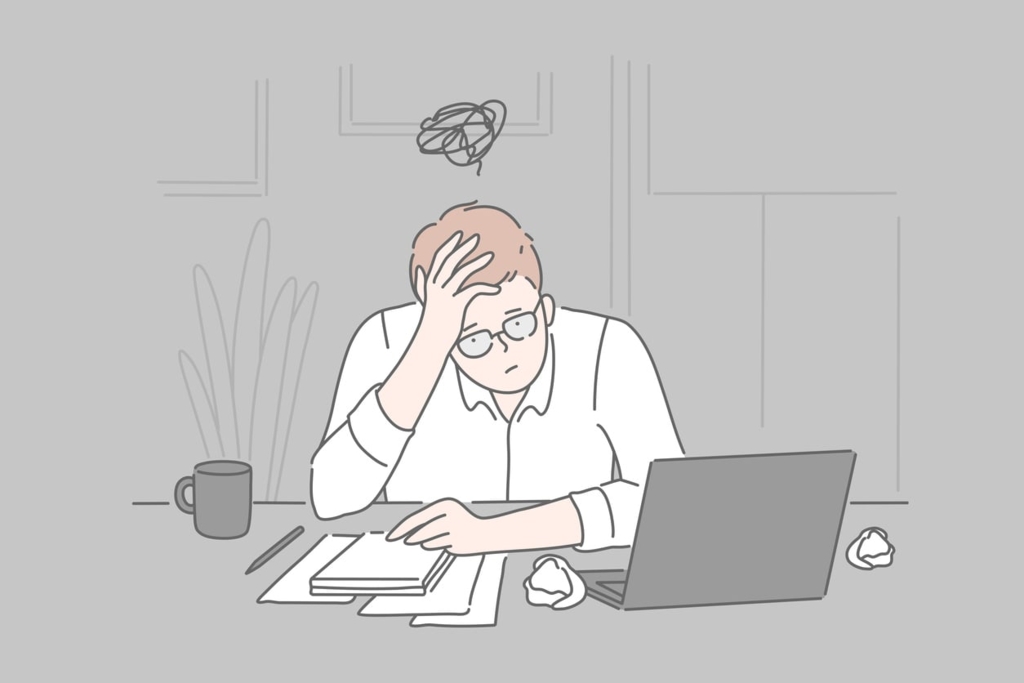The Top 10 Most Common Financial Mistakes

Making financial mistakes is something that we all do from time to time. In fact, it's pretty much inevitable. However, some mistakes are more costly than others. In this blog post, we will discuss the 10 most common financial mistakes that people make and how to avoid them. So whether you're just starting out in your career or you've been managing your finances for years, read on for some helpful tips!
Excessive and Frivolous Spending
While it's important to enjoy your money and not be too frugal, spending too much money on unnecessary or frivolous things is a mistake that many people make. This can lead to financial problems down the road, as well as difficult conversations with loved ones about overspending. There are a few ways to avoid this mistake. First, take some time to understand your spending patterns and see where you can cut back. Second, make a budget and stick to it. Finally, be mindful of your purchases and ask yourself if they are truly necessary. By following these tips, you can avoid excessive and frivolous spending and keep your finances on track.
Never-Ending Payments
One of the most common financial mistakes people make is to take on never-ending payments. Whether it's credit card debt, a car loan, or a mortgage, these payments can quickly become crippling. The problem is that most people only focus on the monthly payment, without considering the total cost of the loan. For example, a car loan may have a low monthly payment, but if it stretches over five years, the total cost of the loan will be much higher. The same is true for credit card debt; people often make minimum payments without realizing how much interest they're paying. As a result, they end up paying hundreds or even thousands of dollars more than they need to. If you're struggling with never-ending payments, it's important to sit down and calculate the total cost of the loan. You may be surprised how much you can save by paying off your debt sooner.
Living on Borrowed Money
When you borrow money, you are essentially borrowing from your future self. This can be a dangerous cycle to get into, as it can lead to mounting debts that become increasingly difficult to repay. In addition, the interest that you pay on borrowed money can add up over time, making it even more difficult to get ahead financially. If you find yourself living on borrowed money, it is important to take steps to get out of debt and start living within your means. Otherwise, you may find yourself in a never-ending cycle of debt that becomes increasingly difficult to break free from.
Buying a New Car
There are a number of reasons why this is a bad idea. First of all, cars depreciate quickly. As soon as you drive a new car off the lot, it loses value. This means that you will never get back what you paid for it, no matter how well you take care of it. In addition, new cars are much more expensive than used cars. You can often find a perfectly good used car for half the price of a new one. And finally, new cars come with a lot of hidden costs, such as insurance and maintenance. When all these factors are taken into account, it’s easy to see why buying a new car is one of the worst financial decisions you can make.
Spending Too Much on Your House
After all, a house is one of the biggest financial investments you’ll ever make. And, as such, it’s important to be mindful of how much you spend on your home. There are a number of ways to do this. First, be realistic about what you can afford. Just because you qualify for a certain mortgage doesn’t mean you should spend that much on your home. Second, don’t overlook the hidden costs of homeownership, such as maintenance and repairs. Finally, resist the temptation to “upgrade” your home constantly. Remember, your house is a home, not an investment. So, don’t let it become a financial burden. Instead, focus on making it a place where you and your family can enjoy life. That’s the best way to make sure your house is truly worth the money you spend on it.
Using Home Equity Like a Piggy Bank
One of the most common financial mistakes people make is using their home equity like a piggy bank. Home equity is the portion of your home's value that you own outright, and it can be a valuable source of funds for major expenses like home renovations or college tuition. However, tapping into your home equity comes with certain risks. If you're not able to repay the loan, you could end up losing your home. And even if you are able to repay the loan, you'll still have to pay interest, which can add up over time. For these reasons, it's important to think carefully before using your home equity for anything other than its intended purpose: as a safety net in case of financial hardship.
Living Paycheck to Paycheck
Living paycheck to paycheck is one of the most common financial mistakes people make. It can be tempting to spend all of your money as soon as you get it, but this can leave you without any savings to fall back on in case of an emergency. Instead, it's important to budget your money and make sure you're putting some aside each month into a savings account. This way, you'll have a cushion to fall back on if you ever find yourself in a tough financial situation. Living paycheck to paycheck can be a stressful way to live, so make sure you're doing everything you can to avoid it.
Not Investing in Retirement
Not investing in retirement is one of the most common financial mistakes people make. There are a number of reasons why people don't invest in retirement, but the most common one is that they think they can't afford it. However, even small amounts of money can add up over time and make a big difference in your retirement savings. Another reason why people don't invest in retirement is that they don't think they need to. However, the sooner you start saving for retirement, the more time your money has to grow. There are a number of ways to save for retirement, including 401(k)s, IRAs, and annuities. If you're not sure how to save for retirement, there are a number of resources available to help you. The most important thing is to start now. The sooner you start saving, the better off you'll be.
Paying Off Debt With Savings
While it may seem like a good idea to use your hard-earned savings to pay down debt, it can actually put you in a worse position financially. If you have an emergency fund, you may be tempted to dip into it to cover unexpected expenses. This can leave you without any savings to fall back on if you face a financial setback, such as a job loss or medical emergency. Additionally, by using your savings to pay off debt, you miss out on the opportunity to grow your money. Your savings could be earning interest that could help you reach your financial goals sooner. In short, paying off debt with savings is a risky move that can leave you in a difficult situation if something unexpected happens. If you're faced with high-interest debt, it may be better to focus on paying that down first before using your savings to pay off debt.
Not Having a Plan
Without a plan, it's easy to overspend and rack up debt. It's also difficult to save money for future goals, like retirement or a child's college education. A good financial plan should include both short-term and long-term goals. It should also account for unexpected expenses, like car repairs or medical bills. By taking the time to develop a solid financial plan, you can avoid making common mistakes that can cost you money in the long run.



